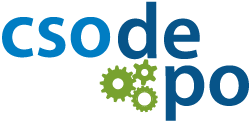FELLOWSHIP FOR HISTORICAL DIALOGUE AND ACCOUNTABILITY
Source: http://www.humanrightscolumbia.org/ahda/fellowship-historical-dialogue-and-accountability
The AHDA fellowship allows participants to come to spend the fall semester of the academic year at Columbia University in New York City. This comprehensive program provides fellows with the opportunity to hone practical skills in fundraising, advocacy and leadership; to develop a deeper understanding of and engagement with the past; and to foster mutually beneficial relationships with their peers and with international and non-profit organizations based in New York and Washington, D.C.
Seminars
Over the course of the semester when the fellows are in residence at Columbia, they attend a series of 2-hour sessions with scholars and other experts in historical dialogue, exploring major theoretical issues and on-the-ground case studies. These seminars include discussions on the role of history, the goals of historical dialogue, and historical dialogue in different thematic and geographical contexts. Fellows develop clear concepts of historical dialogue and accountability on the basis of practical experiences and scholarly insights explored in these sessions. Continuing and active participation in the seminars, including weekly reading assignments and several short writing assignments is a requirement of the program.
Workshops
Seminars are supplemented by capacity building trainings in skills important to the work of historical dialogue, and important to implementing a successful project. These workshops include sessions on fundraising, advocacy tools, new media, and project development. The goal of these workshops is to build capacity in a wide range of skills required for historical dialogue, from facilitation to fundraising.
AHDA Fellow Dr. Bayar Mustafa Sevdeen (second from the right) as a panelist at USHMM event.
Networking & Collaborations
Fellows have the opportunity to meet with a range of international institutions, human rights organizations, foundations and practitioners in the field who are based in New York City, to observe their practices, learn more about their strategies, and to meet their leadership and staff. There are also visits to relevant sites of memory in New York City, and to learn more about their programs, outreach and organizational approach. These opportunities enable fellows to build networks with historical dialogue leaders, and connect with individuals and organizations relevant to their work.
Washington, D.C.
Fellows travel to Washington, D.C. to take advantage of the networking and advocacy opportunities available there. Fellows meet in groups and individually with relevant organizations, foundations, museums, universities and government agencies. The AHDA staff works closely with fellows to ensure that meetings are relevant to their needs and interests. The trip is also an opportunity for fellows to spend time together as a group, and to continue to learn from one another.
AHDA Fellows visited sites and networked in New York and Washington DC.
Individual Projects
During the fellowship participants design a project that addresses some aspect of a history of gross human rights violations in their society, country and/or region. Projects can take a range of forms (films, publications, curricula, reports, meetings/proceedings), with the aim of implementing them when fellows return to their home communities. Fellows will give several presentations related to the topics of their project proposals and other work that they are engaged in to members of the Columbia community and the larger human rights community in New York City. By the end of the semester, each fellow is expected to have completed a detailed proposal and budget narrative for a project in historical dialogue to a panel of fellowship reviewers, for critique and feedback.
AHDA Fellows at the seminars.PNG
AHDA Fellows during seminar.
Columbia University Coursework
Fellows audit 1 to 2 courses at the university during the fall semester. These courses are selected based on their relevance to the particular context or approach to historical dialogue of each fellow. Fellows can attend classes at the School of International and Public Affairs, the Law School, The Graduate School of Arts Sciences, the School of Social Work, Teachers College and Barnard College.
Student Life in New York City
AHDA integrates Fellows into various aspects of student life at Columbia and beyond. Fellows reside at the International House with international and US students and participate in a range of social learning and cultural activities organized by International House and Columbia University. The four-month program gives fellows time and space to reflect on their work and share their experiences and insights with one another. AHDA also facilitates relationship-building among alumni of the program.
